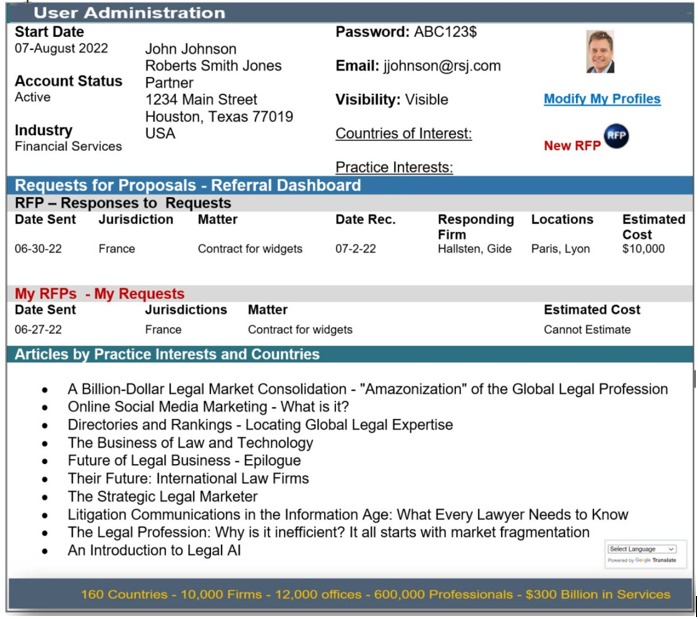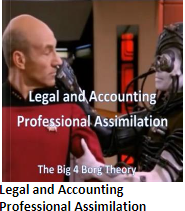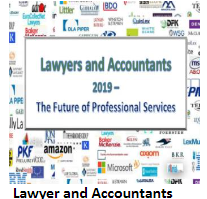Oliver Yandle Former Executive Director, Association of Legal Administrators
Oliver Yandle, CAE, of
Chicago, Illinois is the forme executive
director of ALA. Oliver comes to ALA from the Commercial Law League of
America in Chicago, Illinois where he served as executive vice president.
Oliver’s law
association experience includes holding the executive director position at the
International Association of Defense Counsel, in Chicago, Illinois, and he
served as an adjunct instructor of legal analysis and writing at the Washington
College of Law at American University.
In
addition to his legal experience, Oliver has had a long-standing career in
association work, most recently having held the position of executive vice president
for Commercial Law League of America. He has held senior director positions at
SmithBucklin in Chicago, Illinois, at the International Bridge, Tunnel and
Turnpike Association in Washington, D.C., and at the Intelligent Transportation
Society of America in Washington D.C.
He is active in both the American Society of Association Executives (ASAE), where he holds the Certified Association Executive designation and the Association Forum of Chicagoland. Oliver is a native of Louisiana and holds a B.A. in journalism from Loyola University of the South in New Orleans, and a J.D. from Washington College of Law at The American University in Washington, D.C
Legal Administrative
Associations
Professional associations serving the legal
profession have been around for more than 100 years, helping to shape the
development of the law and those who practice it. Professional associations for
administrative management in the legal industry, however, are a more recent
development. In 1957, the president of the American Bar Association, Charles S.
Rhyne, identified the need for an increased focus on the economics of law
practice and created a special committee to develop practical suggestions on
how to manage the business of law. By the early 1970s, the needs and
complexities of law firm management had grown significantly, spurring the
creation of a number of organizations specifically focused on the business of
law.
These associations provide information, education, and
networking opportunities to help their members meet the challenges inherent in
managing successful law firms. They offer support with practical skills as well
as leadership training, and advocate for their members to become strategic
partners with attorneys in providing client service that is both effective and
profitable. Many offer certification programs that provide advanced skill
training and professional recognition for excellence in legal management.
With law firms and law departments experiencing some
of
the most dramatic shifts in how legal services are delivered,
the
need for professional legal management leadership has never been greater. These
professionals bring critical business strategy and insights to improve
financial performance, firm growth, and client service. There are a number of
professional organizations available to support them.
The Association of Legal Administrators[1] was founded
in 1971 to provide legal managers with an international forum in which to
develop their skills, share ideas, and advance their careers in this emerging
profession. Today, the association represents nearly 9,000 legal business
professionals from more than 30 countries. Members include law firm chief
executive officers, principal administrators, functional specialists, and
managing partners responsible for developing business strategies and leading
legal business operations. The Association has developed a Certified Legal
Manager certification program designed to acknowledge those professionals who
have mastered the knowledge, skills, and abilities necessary to operate at a
high level of expertise in the field of legal management.
In addition to annual conferences and meetings, the
association provides an array of resources to support its members, including an
annual compensation and benefits survey, customized research services, career
development services, peer consulting, and shared interest groups. It offers
frequent webinars and other online learning resources. The association’s
award-winning publication, Legal
Management, offers in-depth articles covering topics including financial
management, operations, technology, marketing and business development,
leadership, and strategy. ALA’s network of 92 chapters throughout the United
States and Canada provide members with opportunities to connect with local
colleagues for education and networking events.
The American Bar Association Law Practice Division[2] evolved from
the ABA’s special committee on the economics of law practice and was
established in 1974 to offer finance. The mission of this Division is “to
investigate, evaluate, develop, and disseminate information and techniques
which will make the legal services delivery team more effective, competent,
ethical, and responsive to the needs of clients and the public.”[3] The group is
a network of 20,000 members and primarily focused on the needs of
lawyer-managers, but also offers lawyers and legal professionals information
and information relevant to administrative managers as well.
The Division publishes Law Practice magazine, Law Practice Today (a monthly digital
publication), and other books and newsletters. In addition to meetings and
other resources, the Division is host to the Women Rainmakers Committee, which
serves “(1) to educate professional women about marketing and business
development; (2) to provide mentoring opportunities for members; and (3) to
provide networking opportunities to build personal and professional
relationships.”[4]
The College of Law Practice Management[5] honors and
recognizes notable law practice management professionals; sets standards of
achievement; and funds and supports projects that improve law practice
management. Founded in 1994, the group conducts an annual Futures Conference,
which explores the future of law practice management and the profession. It
also hosts the InnovAction awards, honoring innovation and achievement in the
legal profession. Membership in the organization is by invitation only, and
nominations are made by existing members (who are called “fellows”).
The American Association of Law Libraries[6] was founded
in 1906 to illustrate the importance of law libraries, to bolster law
librarianship, and to offer leadership in the field of legal information. Law
firm librarians have emerged as strategic assets as they continually right-size
collections, budgets, and staffs, and align library strategies to those of
their organizations.
In
addition to supporting the professional growth of its members, AALL also
engages in advocacy efforts impacting the field of legal information and
information policy, specifically on issues related to access to government
information, copyright protections, privacy protections, and access to justice.
With a membership of nearly 5,000, the Association represents law librarians
and related professionals who are affiliated with everything from law firms,
law schools, and corporate legal departments to courts and government agencies.
In
addition to meetings and educational resources, the group publishes a quarterly
scholarly journal, Law Library Journal,
which includes peer-reviewed articles on law, legal materials, and
librarianship. It also has a network of chapter organizations across the United
States.
For
more than three decades, the International Legal Technology Association[7] has provided
a forum for sharing knowledge and experience for those managing technology
challenges in their firms and legal departments.
Information technology professionals in law firms have
risen to strategically important positions that affect client-facing services.
It is a professional association comprising almost 1,300
law firms and legal departments from around the globe. The association’s
purpose is to provide information to members to maximize the value of
technology in support of the legal profession. Through delivery of educational
content and peer-networking opportunities, ILTA provides members information
resources in order to make technology work for the legal profession.
Among its publications are Peer to Peer (published quarterly), and several white papers and
surveys; it also hosts online product briefings for emerging technologies as
well as a number of in-person meetings and symposia.
Established
in 1984, the International Practice Management
Association[8] has also evolved
to meet the changing needs of the legal profession. It began as the Legal
Assistant Management Association and was renamed the International Paralegal
Management Association on January 1, 2005. “As a reflection of its updated and
expanded mission to serve managers of not only paralegals but also other
practice support professionals, the Association changed its name in April 2014
to the International Practice Management Association.”[9]
IPMA is a leading resource for information regarding the
management of paralegals and other practice support professionals in law firms.
IPMA has more than 500 members who are directors or managers of paralegal
services in law firms or governmental agencies in North America, Europe, Asia,
and the Caribbean.
It hosts an annual conference and expo, as well as a
managerial skills seminar. Its quarterly electronic magazine, Paralegal Management magazine, features
articles on current trends and issues that relate to management and the
paralegal profession.
The Legal Marketing Association,[10] founded in 1985, “serves the needs and maintains the
professional standards of the men and women involved in marketing, business
development, client service and communications within the legal profession. LMA
also is a resource for practicing attorneys and law firm leaders who want to
develop their practices and gain competitive advantage.”[11] The
organization has more than 4,000 members (48 U.S. states, Canada, and 15 other
countries) and 37 chapters (in the U.S. and Canada).
LMA provides on-demand education through its CORE
(Continuing Online Resource for Legal Marketing Education) competencies program
and a Quickstart Online Course designed for newcomers to the legal marketing
and business development field. These courses cover all 10 core competencies of
legal marketing.
NALP,[12] the National
Association for Law Placement, began in 1971 during a tumultuous period in both
the legal profession and legal education; their creation was a response to a
perceived need for a forum in which legal professionals could discuss issues
around placement and recruitment.[13] This
organization, which consists of more than 2,500 legal career professionals who
advise law students, lawyers, law offices, and law schools both domestically
and abroad, facilitates legal career counseling and planning.[14]
In addition to a
monthly bulletin, the group publishes a number of research and statistical
studies on a variety of topics, including diversity and inclusion; lawyer and
law student professional development; recruitment and hiring; and compensation
and benefits. Formed in 1975, the National Association of Legal Assistants[15]
is the leading paralegal association in the United States. Its mission “is to
provide continuing education and professional development programs to all paralegals.”[16]
Representing more than 18,000 paralegals, NALA provides continuing education
materials and seminars, networking opportunities, professional certification
programs, occupational survey findings, and manuals to help paralegals excel
in the workplace. NALA offers a robust bimonthly magazine called Facts &
Findings that provides up-to-date educational articles focused on various
practice areas of law and breaking news. They produce a special “Career
Chronicle” issue each January.
NALS, the
Association for Legal Professionals,[17]
is the oldest association formed for legal support professionals. Established
in 1929, the group was incorporated as the National Association of Legal
Secretaries in 1949 and renamed in 1999 to reflect the various positions held
by its membership.
NALS offers
basic and advanced legal training courses created for legal professionals
looking to expand their current skills. It also provides an online basic legal
training course through Stetson University.
As the challenges
and complexities of the legal profession have grown, so, too, have the roles
and importance of the legal professionals who are responsible for the business
needs of law firms and law departments.
Working
together, the array of associations serving these leaders and support
professionals provide business intelligence, education, and networking critical
to advancing both the individual and the legal industry. Now, more than ever,
the success of law firms and law departments depends on effective strategy,
shrewd business acumen, and high-performing teams. These organizations provide
essential resources for developing the professionals charged with delivering
that success.
[1] THE ASSOCIATION OF LEGAL ADMINISTRATORS, http://www.alanet.org.
[2] AMERICAN BAR ASSOCIATION,
ABA LAW PRACTICE DIVISION, http://www.americanbar.org/groups/law_practice/about_us.html.
[3] Id.
[4] ABA WOMEN RAINMAKERS
COMMITTEE, http://www.americanbar.org/groups/law_practice/committees/wr-committee.html.
[5] THE COLLEGE OF LAW PRACTICE
MANAGEMENT, http://collegeoflpm.org.
[6] THE AMERICAN ASSOCIATION OF
LAW LIBRARIES, http://www.aallnet.org.
[7] THE INTERNATIONAL LEGAL TECHNOLOGY ASSOCIATION, http://www.iltanet.org.
[8] THE INTERNATIONAL PRACTICE
MANAGEMENT ASSOCIATION, http://www.theipma.org.
[9] THE INTERNATIONAL PRACTICE
MANAGEMENT ASSOCIATION, HISTORY, http://www.theipma.org/about-the-ipma/history.
[10] LEGAL MARKETING ASSOCIATION,
ABOUT, http://www.legalmarketing.org/about_lma.
[11] NALP, www.nalp.org.
[12] NALP, WHAT IS NALP? www.nalp.org/whatisnalp.
[13] Id.
[14] Id.
[15] NALA, http://www.nala.org.
[17] NALS, http://www.nals.org.





 Software
Software Law
Law Legal
Legal






